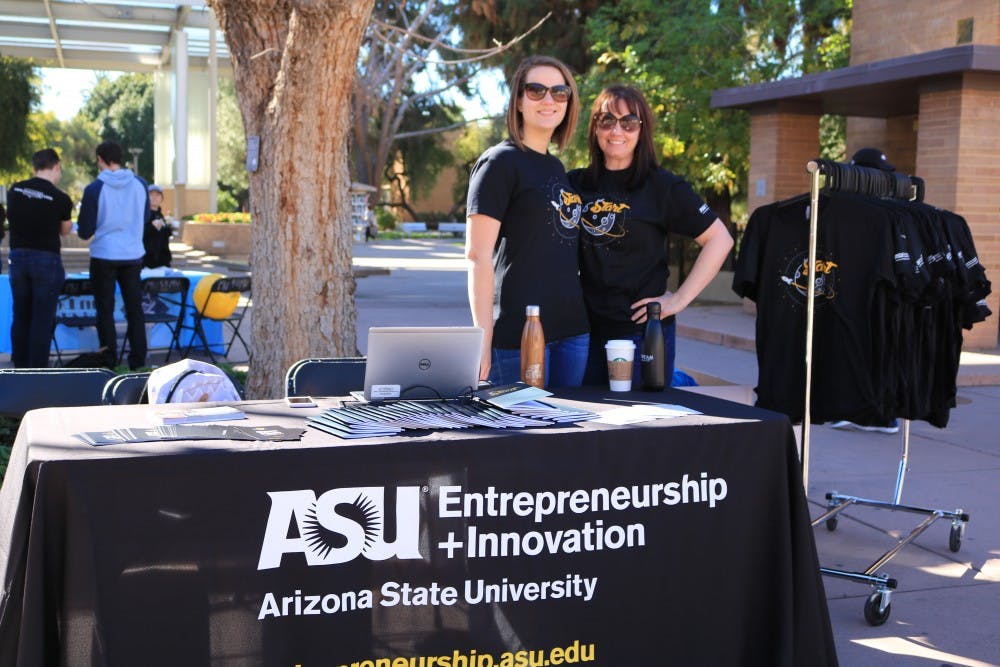Two best friends have tossed around the idea of changing the fitness industry for years and as their company expands, their dream is becoming a reality.
Ro Vanaki, a W.P. Carey senior and Pedrum Khosravi, an University of Minnesota alumnus, founded Pursuit Health Technologies last April, aiming to help physical trainers manage their clients. Last month they brought on Arash Tadayon, an ASU Ph.D student to be the CTO of their company.
It started as just an idea, but now they were in the Phoenix Biz Journal as a top-32 company of Venture Madness.
Vanaki said Pursuit Health Technologies is a software that "aims to bridge the gap between fitness and technology." The software uses machine learning and artificial intelligence to aid personal trainers with administration and managing their clients.
“We’ve developed a feedback analysis tool which can save more time, generate more revenue and make clients happier,” Vanaki said.
After being finalists in ASU's Sun Devil Igniter Challenge, the Pursuit Health Technologies team was introduced to Venture Devils, an ASU program that partners students, faculty and community members who are working on a venture with a mentor to guide them.
Pursuit Health Technologies was paired with Bret Larsen as a mentor, and Larsennow sits on the Board of Advisers for Pursuit Health Technologies. Larsen is a young CEO of his own startup, eVisit, a telehealth software company.
Pursuit Health Technologies is a competing in City Scape Street Pitch and is the only team still in college. Vanaki said Larsen advised him to never let his age discourage him or be intimidated by older teams.
“It’s your passion and your desire to change an industry that matters,” Vanaki said.
Stephanie Sims is a mentor in the Venture Devils program. The teams she mentors are in different developmental phases: One of her teams is prototyping its product and another team is in the revenue stage.
“We have ventures from what we call ideation, which is people who just have a really good idea to potentially solve a problem they identified, all the way through people who are in revenue which means they have a business that is generating sales,” Sims said.
Each venture mentor is paired with about six teams, and they work with those teams throughout the whole process. This way, no team has to start over with a new mentor.
Sims said a factor of success is the willingness of a team to talk to clients and to take and act on their feedback. It is important for the team to understand in the ideation phase that their initial idea is a starting point, not the final solution.
“I can tell them what I think, but it’s up to them what they’re going to do with it,” Sims said.
Sarah Hill, program manager in entrepreneurship and innovation, part of the Office of Knowledge Enterprise Development, said Venture Devils is supporting about 230 current ventures. She also said the primary way Venture Devils supports a team is through mentorship.
Hill said most mentors have successfully exited a company and are aware of the startup scene in Arizona. While their advice is valuable, it is also beneficial for them to act as a connector to the opportunities in the Phoenix startup scene.
“Phoenix has a really good startup ecosystem and community that is built, so having (the mentors) ingrained in that and knowing about the different resources that are here locally is a huge advantage,” Hill said.
Hill said Venture Devils is a useful tool for many young entrepreneurs to help them with the ideas they've imagined.
“I think there is a huge untapped population at the University," Hill said. "Especially online. (There are students) that have ideas and don’t realize there is a resource for them.”
Reach the reporter at ndusanek@asu.edu or follow @NikkiDusanek on Twitter
Like The State Press on Facebook and follow @statepress on Twitter




